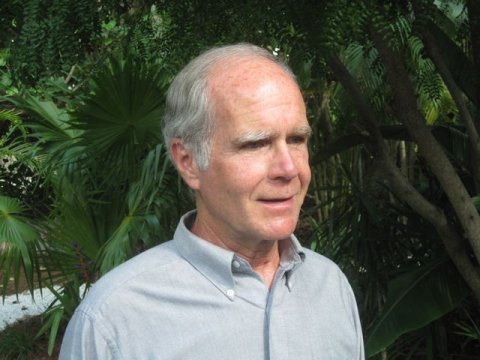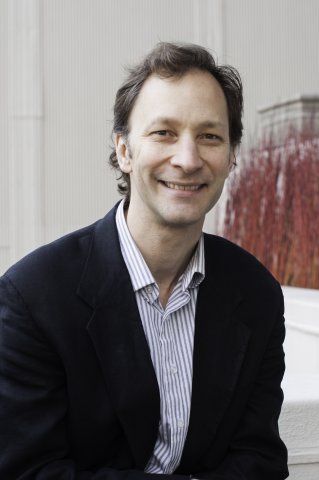
2018 Children’s Environmental Health Symposium Presentations
Ted Schettler, MD, MPH
An Ecologic Approach to Health and Disease (Presentation Video)Science Director; Science and Environmental Health Network
Ted Schettler is Science Director of the Science and Environmental Health Network. He has a medical degree from Case Western Reserve University and MPH from Harvard University. Schettler is co-author of Generations at Risk: Reproductive Health and the Environment; In Harm’s Way: Toxic Threats to Child Development; and Environmental Threats to Healthy Aging. For many years his work has explored the intersections of individual, public, and environmental health. These come together in an ecologic framework, to help further understanding of the causes and opportunities for preventing a number diseases and disorders in which environmental factors, diet, nutrition, socioeconomic circumstances, and community variables are collectively involved. He used the framework when writing The Ecology of Breast Cancer: The Promise of Prevention and Hope for Healing and it informs each chapter in the eBook, A Story of Health, which he has also co-authored.
Deborah A. Slechta, PhD
Developmental Neurotoxicity of Ambient Ultrafine Particles: Parallels with Neurodevelopmental Disorders (Presentation Video)Professor of Environmental Medicine, Pediatrics and Public Health Sciences
Department of Environmental Medicine
University of Rochester Medical Center
Dr. Deborah Cory-Slechta is a Professor of Environmental Medicine, Pediatrics and Public Health Sciences at the University of Rochester Medical School, and former Chair of its Department of Environmental Medicine and PI of its NIEHS Core Center Grant. She also previously served as Dean for Research at the University of Rochester Medical School, and as Director of the Environmental and Occupational Health Sciences Institute of Rutgers University. Her research, which includes both animal models and human studies, has focused largely on the consequences of developmental exposures to environmental chemicals on brain development and behavior. This work has examined the effects of developmental exposures to metals, pesticides and air pollutants in animal models and human cohort studies.
Irva Hertz-Picciotto, PhD
Early life exposures to air pollution and the risks for autism (Presentation Video)Professor and Director, the UC Davis Environmental Health Sciences Center
Director of Program in Environmental Epidemiology of Autism & Neurodevelopment, UC Davis MIND Institute
Co-Founder, Project TENDR (Targeting Environmental Neuro-Development Risks)
School of Medicine University of California, Davis
Dr. Hertz-Picciotto, PhD, is Director of the NIH-funded UC Davis Environmental Health Sciences (EHS) Center and Professor in the Department of Public Health Sciences, School of Medicine, UC Davis. She is an internationally renowned environmental epidemiologist with over 300 scientific publications addressing environmental exposures, including metals, pesticides, air pollutants and endocrine disruptors, their interactions with nutrition, social factors and genetics, and their influences on pregnancy, the newborn, and child development. Her comprehensive research program on environmental causes for autism has produced seminal papers showing links with (as examples) pesticides, traffic-related air pollution, low periconceptional folic acid intake, and untreated fever during pregnancy and on epigenetic, immune, and mitochondrial biomarkers. Her team also pioneered studies on gene-by-environment interactions in autism.
Frederica Perera, DrPH, PhD
Prenatal exposure to combustion-related air pollutants and cognitive/behavioral dysfunction in children (Presentation Video)Professor of Public Health
Director, Columbia Center for Children's Environmental Health
Department of Environmental Health Sciences
Mailman School of Public Health Columbia University
Dr. Frederica Perera, DrPH, PhD, is a Professor of Environmental Health Sciences and since 1998 has served as Director of the Columbia Center for Children's Environmental Health. Dr. Perera is internationally recognized for pioneering the field of molecular epidemiology, utilizing biomarkers to understand links between environmental exposures and disease. Currently, she and her colleagues are applying advanced molecular and imaging techniques within longitudinal cohort studies of pregnant women and their children, with the goal of identifying preventable environmental risk factors for developmental disorders, asthma, obesity and cancer in childhood. These include toxic chemicals, pesticides, and air pollution, with particular focus on adverse effects of prenatal and early childhood exposures. Her areas of specialization include prevention of environmentally related neurodevelopmental disorders and disease in children, cancer prevention through the use of novel biomarkers, environment-susceptibility interactions, and risk assessment. Her recent research is also addressing the multiple impacts on children’s health and development of fossil fuel combustion—both from the toxic pollutants emitted and climate change related to CO2 emissions.
Maria Harris, PhD
Environmental Defense Fund Early life exposure to ambient air pollution and cognitive function (Presentation Video)Environmental Epidemiologist, Environmental Defense Fund
Maria Harris recently joined Environmental Defense Fund (EDF) as an environmental epidemiologist in the Office of the Chief Scientist. At EDF, Maria focuses on air quality research and advocacy around the health impacts of air pollution exposure. Maria received her PhD in Environmental Health from Boston University, and was a postdoctoral researcher at the Center for Environmental Research and Children's Health (CERCH) at UC Berkeley, where her research examined the influence of early life environmental exposures, including traffic-related pollution, on child health and development. She also earned an SM in Environmental Health at Harvard School of Public Health and served as a student researcher in the Air Pollution Epidemiology Section at OEHHA.
Sam Goldman, MD, MPH
The role of early life environmental exposures in late life neurodegenerative disorders (Presentation Video)Associate Clinical Professor of Medicine
Division of Occupational and Environmental Medicine
Co-Director, Western States Pediatric Environmental Health Specialty Unit
University of California, San Francisco
Dr. Goldman received his medical degree from the University of Texas, Houston. He trained in Preventive Medicine and earned a Master of Public Health in Environmental Health Science from the University of California, Berkeley. He is currently Associate Clinical Professor of Medicine at the University of California, San Francisco in the Division of Occupational & Environmental Medicine and the Department of Neurology, and is an attending physician in Environmental Medicine at the San Francisco VA Medical Center. He is also co-Director of the Western States Pediatric Environmental Health Specialty Unit (PEHSU). Dr. Goldman has published extensively on the epidemiology of neurodegenerative diseases, with a focus on environmental risk factors and Parkinson’s disease. Among these are pesticides, solvents, smoking and traumatic brain injury, the microbiome, and the interaction of these factors with genetic susceptibility factors.
Jiu-Chiuan (J.C.) Chen, MD, MPH, ScD
Influence of ambient air pollution on brain health trajectories during development and aging: an environmental neurosciences perspective (Presentation Video)Associate Professor of Preventive Medicine & Neurology
Co-Director, Data Management and Biostatistics Core, Alzheimer’s Disease Research Center
Keck School of Medicine, University of Southern California
Dr. Chen is a physician-scientist with multidisciplinary training in Medicine, Environmental Health Sciences, and Epidemiology (Clinical; Environmental; Occupational). His research interest includes the neurological and cardiovascular effects of environmental exposures, healthy aging in urban environments, characterization of individual susceptibility to health effects of air pollution, and epidemiological methods for environmental health research. Over the past 10 years, he has conducted several NIH-funded studies investigating whether and how exposures to neurotoxic air pollutants affect the neurobehavioral development and cognitive functions across the life span, focused on adolescent and aging brain. Dr. Chen and his USC colleagues launched the AirPollBrain Network in 2010, with the mission to develop an interdisciplinary research, education and training program in Environmental Neurosciences of Neurodevelopment and Brain Aging in Urban Environments.
Staci D. Bilbo, PhD
Prenatal inflammation by combined environmental stressors persistently alters microglial phenotype and behavior in male but not female mice (Presentation Video)Director of Research, Lurie Center for Autism
MassGeneral Hospital for Children
Lurie Family Associate Professor of Pediatrics, and Program in Neuroscience, Harvard Medical School
Dr. Staci Bilbo is the Lurie Family Associate Professor of Pediatrics and Neuroscience at Harvard Medical School and the Director of Research for the Lurie Center for Autism at Massachusetts General Hospital for Children. Her research is broadly focused on the mechanisms by which the immune and endocrine systems interact with the brain to impact health and behavior. Current research in her laboratory focuses on understanding the consequences of early life events, including infection, stress, environmental toxins, and maternal obesity on neural and immune system development, with an emphasis on autism spectrum disorder. A particular focus of the work is on the resident immune cells of the brain, microglia, including their development and function in response to early life inflammatory signals.
Marc G. Weisskopf, PhD, ScD
Particulate Matter Air Pollution: Neurological and Psychiatric Dysfunction (Presentation Video)Professor
Departments of Environmental Health and Epidemiology
T.H. Chan School of Public Health, Harvard University
Marc G. Weisskopf, Ph.D., Sc.D., is Professor of Environmental and Occupational Epidemiology at the Harvard T.H. Chan School of Public Health in the departments of Environmental Health and Epidemiology. Dr. Weisskopf received his Ph.D. in Neuroscience from the University of California, San Francisco, and his Sc.D. in Epidemiology from the Harvard School of Public Health. He also spent two years as an Epidemic Intelligence Service Officer with the Centers for Disease Control and Prevention working on environmental health issues in the Wisconsin State Health Department. His neuroscience work focused on molecular and cellular aspects of neural signaling and plasticity. His epidemiological work focuses on the influence of environmental exposures on brain health across the life course. In particular, his research focuses on environmental risk factors for outcomes such as autism spectrum disorders, amyotrophic lateral sclerosis, Parkinson’s disease, cognitive function, and psychiatric conditions. Dr. Weisskopf also explores the use of physiologically-based methods for assessing toxicant effects on the brain, and epidemiological methods issues that relate to environmental health studies.








